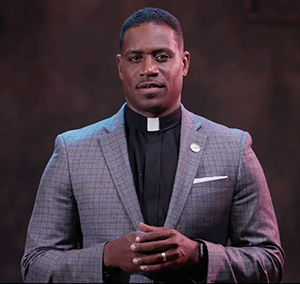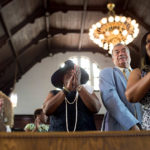WASHINGTON (RNS)—A new docuseries featuring Black clergy and scholars aims to explore the resilience of the Black church and highlight how many of its influential members tie their accomplishments in society to their adherence to the Bible.
How I Got Over, a five-part series, examines the history of seven historic Black denominations and highlights major Black Christian leaders—well-known and lesser-known—who have contributed to American society.
Officials of the AND Campaign, a nonpartisan think tank that promotes Christian civic engagement, released the first episode on YouTube Feb. 13.

AND Campaign leaders who are featured in the documentary’s half-hour episodes note the Black church is not monolithic, pointing out Martin Luther King Jr. was not supported by all Black churches.
Black churchgoers are not all progressive or liberal, they observe, but many have long embraced a more conservative Christian orthodoxy.
“Orthodoxy, or true belief in Scripture, doesn’t belong to any one culture,” said Justin Giboney, president of the AND Campaign, in an interview with Religion News Service. He said part of the goal of the series is to highlight the conservative theological stances of many Black Christians.
“What we’re saying is orthodoxy has always been in the Black church. It’s still strong, and we think that’s part of the Black church’s future.”
In the documentary, Pastor C.J. Rhodes of Mount Helm Baptist Church, in Jackson, Miss., describes what he calls the “sanctified seven” major Black denominations, divided among three strains of Christianity: Methodist (African Methodist Episcopal Church, African Methodist Episcopal Zion Church and Christian Methodist Episcopal Church), Baptist (National Baptist Convention, USA; National Baptist Convention of America; and Progressive National Baptist Convention) and Pentecostal (Church of God in Christ).
“In today’s moment of the Black church, there’s a lot of overlap and confluence between these three groups, which was a very interesting turn of events, given about 100 years ago they fought vehemently about which one was truer to the biblical witness,” Rhodes said in the first episode.
United by biblical orthodoxy
The series, timed to start during Black History Month, follows another documentary, PBS’ The Black Church: This Is Our Story, This Is Our Song, based on a 2021 book by Harvard historian Henry Louis “Skip” Gates Jr.
Giboney praised the overall content of that four-hour documentary but said he thought “it did tell us that we need to go left,” and his organization wanted to offer a different perspective.
The new series notes the origins and differences among the plethora of Black denominations were based on “secondary issues” such as baptism, women preachers, speaking in tongues and levels of training, Giboney said.
“We wanted to show the substantive differences between the denominations but also show that the primary arguments were not about orthodoxy,” he said.
More recently, he said, Black church leaders from a range of denominations have banded together to support voting rights initiatives and the proposed Fairness for All Act, which would provide broad protections for LGBTQ people and simultaneously provide exemptions for religious institutions that uphold traditional beliefs about marriage and sexuality.
The AND Campaign affirms traditional marriage between a man and a woman and considers families with a mother and father as “the traditional family ethic,” Giboney said.
The documentary features longtime Black church leaders such as Pastor Claude Alexander of The Park Church in Charlotte, N.C., and Pastor Cynthia Hale of Ray of Hope Christian Church, a Christian Church (Disciples of Christ) congregation outside Atlanta.
But Giboney, an executive producer (along with Rhodes) of the series, said they intentionally included younger voices speaking about Black religious history.
The series emphasizes speakers such as Nona Jones, founder of Faith & Prejudice, who describes once-enslaved Richard Allen’s decision to start the African Methodist Episcopal Church; and Isaiah Robertson, founder of Black Church Empowered, who recounts how Nannie Helen Burroughs started the influential National Baptist Women’s Convention.
It also includes interviews with leaders such as Barbara Williams-Skinner, a public policy strategist and co-convener of the National African American Clergy Network, and former longtime Philadelphia Mayor W. Wilson Goode Sr., who link their civic work with their commitment to the Bible.
“I intended not to be a politician,” said Goode in the second episode. “I intended to be seen as someone who was a Christian who believed in Christian principles, who carried out what I carried out with Christian principles.”
Documentary producers plan to release the second episode on Feb. 27 and three others in March and April, all of which will be available on the AND Campaign website after their premieres.















We seek to connect God’s story and God’s people around the world. To learn more about God’s story, click here.
Send comments and feedback to Eric Black, our editor. For comments to be published, please specify “letter to the editor.” Maximum length for publication is 300 words.